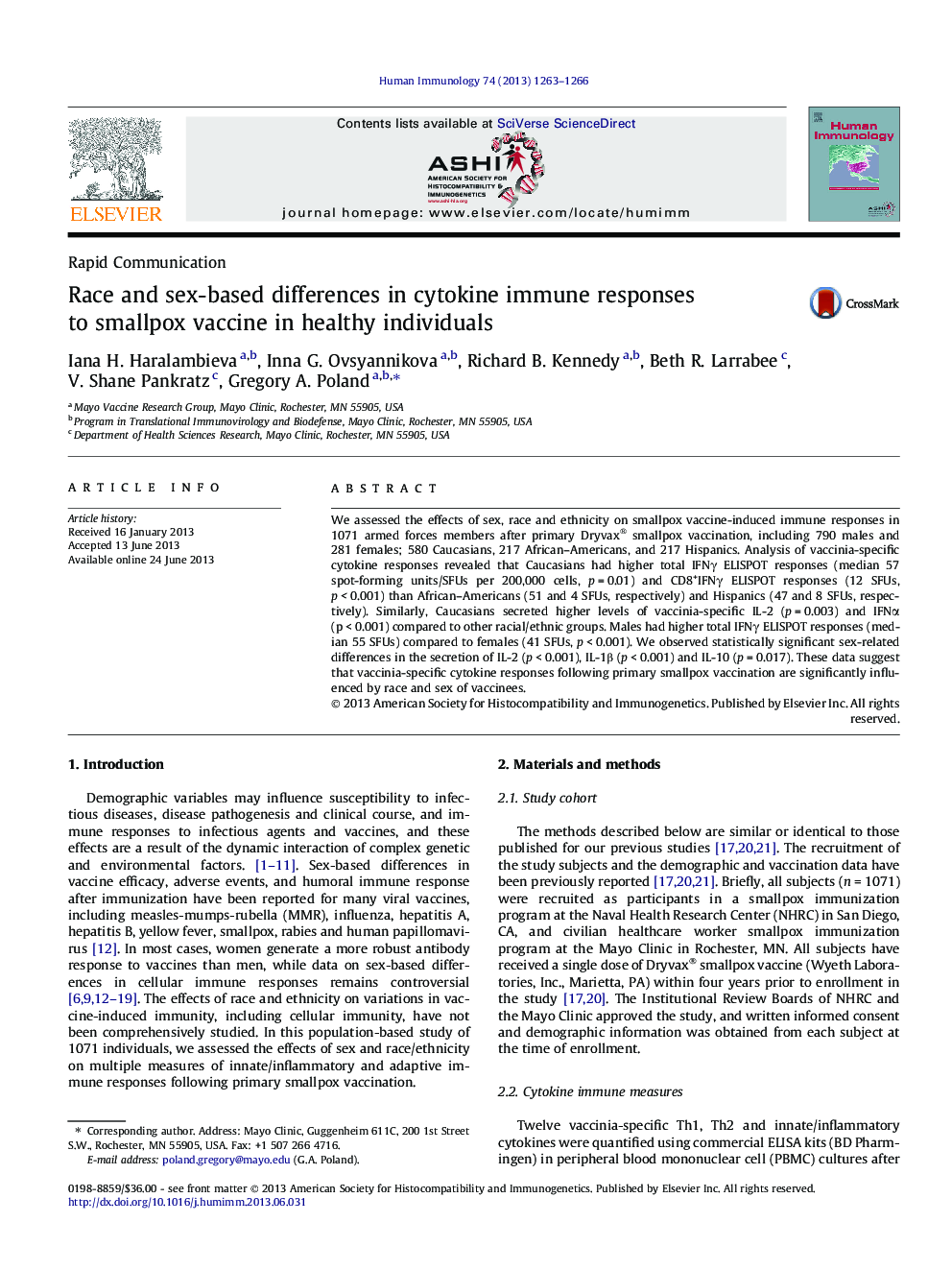| Article ID | Journal | Published Year | Pages | File Type |
|---|---|---|---|---|
| 6116777 | Human Immunology | 2013 | 4 Pages |
Abstract
We assessed the effects of sex, race and ethnicity on smallpox vaccine-induced immune responses in 1071 armed forces members after primary Dryvax® smallpox vaccination, including 790 males and 281 females; 580 Caucasians, 217 African-Americans, and 217 Hispanics. Analysis of vaccinia-specific cytokine responses revealed that Caucasians had higher total IFNγ ELISPOT responses (median 57 spot-forming units/SFUs per 200,000 cells, p = 0.01) and CD8+IFNγ ELISPOT responses (12 SFUs, p < 0.001) than African-Americans (51 and 4 SFUs, respectively) and Hispanics (47 and 8 SFUs, respectively). Similarly, Caucasians secreted higher levels of vaccinia-specific IL-2 (p = 0.003) and IFNα (p < 0.001) compared to other racial/ethnic groups. Males had higher total IFNγ ELISPOT responses (median 55 SFUs) compared to females (41 SFUs, p < 0.001). We observed statistically significant sex-related differences in the secretion of IL-2 (p < 0.001), IL-1β (p < 0.001) and IL-10 (p = 0.017). These data suggest that vaccinia-specific cytokine responses following primary smallpox vaccination are significantly influenced by race and sex of vaccinees.
Related Topics
Life Sciences
Immunology and Microbiology
Immunology
Authors
Iana H. Haralambieva, Inna G. Ovsyannikova, Richard B. Kennedy, Beth R. Larrabee, V. Shane Pankratz, Gregory A. Poland,
